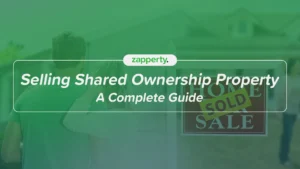Planning on buying or selling a house? What are property or conveyancing searches, why are they important, which ones are required, and who pays for what? Who pays for searches when selling a house in the UK can often be a point of confusion, as the responsibility for paying for these searches typically falls on the sellerRead our helpful guide to understand more.
What are Searches when buying a house?
In the UK property market, searches are checks on the local area of the property you want to buy. They are carried out by your solicitor to find out more information including any local development pans that may affect the home your plan to buy. You might learn for example that your property is at risk of floods or its located near contaminated land. Conveyancing searches are therefore very important in the home-buying processIf you’re wondering how much do searches cost when buying a house, the buyer generally covers these costs as part of their due diligence during the property purchase process
Different types of property searches
Let’s look at the types of property searches. There are 6 main sorts.
- Local authority searches. Produced by the local council. These searches examine the property, and look at:
- Planning permission
- Building regulations
- Nearby conservation areas
- Proposed developments in the area
- Potential road schemes
- Environment searches. These examine any environmental risks linked to the property. These could be contamination, flood risks, or subsidence, etc.
- Water and drainage searches. Where are the property’s water mains and sewers? How is the property connected, and are those connections up to scratch? This survey will tell you.
- Mining searches. Some areas have a history of mining. Mining searches cover issues like subsidence or ground stability.
- Chancel repair liability. Older properties may be liable for repairs to their local church. This happens less often these days thanks to a recent law change, but a search will show where you stand.
- Title or land registry search. This is a background check on the property to verify ownership and uncover potential legal issues.
Why are searches carried out?
These surveys show what’s there, allow problems to be handled early on, put everyone’s mind at rest, and give the sale a green light.
Searches keep the entire buying and selling process transparent.
Are searches required?
It depends. Are you buying a property with a mortgage? Mortgage lenders will insist on searches as they’re risking their money. But searches are recommended even if you’re buying a property with cash.
For example, a couple bought a farmhouse near a church and later learned they had to pay thousands for church repairs. Sorting out the searches early on can help you avoid nasty surprises.
Don’t be afraid to speak to neighbours to gain first-hand knowledge about the local area. What are the local amenities like, what public transport is available, and what about the community atmosphere?
Searches on the Seller
Buyers usually pay for most of the searches. After all, they’ll need to live with any issues that crop up.
However, sellers might offer to pay for local authority searches. Doing this can save time; the surveys will be ready and waiting for potential buyers. And in a competitive market, buyers might hanker for a hassle-free sale.
Local authority searches can take up to six weeks, but other searches can be completed in under a week. Contact the local council to start the ball rolling.
Sellers might also pay for chancel repair liability searches, though online service providers can do this search for you. Sellers can also lubricate the sale by producing a ‘Sellers Pack’, containing things like an ‘Energy Performance Certificate’, details about the property boundaries, and any rights of way. To ensure a smooth transaction, sellers should also be aware of all the necessary paperwork involved—learn more in our guide on Documents Needed to Sell a House.
Who Pays for Searches When Selling a House?
The buyer usually pays for the searches, and should add the cost to their budgets. This table outlines the cost of each search, and who pays.
| Search name | Who pays? | How much? |
| Local Authority | Seller, but can be the buyer | Between £100 and £400 |
| Environmental | Buyer | Between £30 and £50 |
| Water and Drainage | Buyer | Between £20 and £30 |
| Mining searches | Buyer | £30 or more |
| Chancel repair liability | Varies, but usually the buyer | Between £20 and £30 |
| Land registry or title search | Buyer | Between £3 and £7 |
If your house is urban, or used for more than one purpose, or if it’s listed, or in a conservation or flood area, the searches may cost more.
Don’t be tempted to skimp. Used properly, searches will protect your investment. Look around: some search provider companies offer discounts. Kick everything off early to avoid delays.
Understanding search results
Some surveys will use technical terms, and you should understand what’s being said. Your solicitor or conveyancer can help.
Most issues are minor, but complex issues might require advice from people like structural engineers or surveyors. They’ve probably seen your problem before and can answer your questions.
Issues will vary from case to case, but they commonly include:
- Flooding or subsidence risks
- A debt linked to the property
- Ongoing neighbour disputes
- Existing Japanese Knotweed in the garden
- New developments planned nearby
Problems can appear, but there are ways forward. Consider:
- Asking the seller to reduce the price to account for the cost of repairs.
- Asking the seller to fix any issues
- Sharing repair costs between seller and buyer
- Making the house sale conditional on the seller fixing the issue.
- Taking out indemnity insurance to cover future costs
- Walking away
You can smooth negotiations by:
- Being clear and specific and outlining the issue and any potential cost
- Being transparent
- Considering cost-sharing agreements
- Supporting your claims with quotes from professionals.
- Staying reasonable and putting yourself in the other party’s shoes.
What happens after searches are complete?
Action is needed if searches reveal problems, and you can work with other parties for an effective resolution. The buyer’s solicitor should keep the buyers up to date.
Once the surveys are complete and any issues dealt with the sale can move forward. Starting searches early on can make everything more transparent, more efficient, and more enjoyable.
Additional Selling Costs
Selling a house comes with a range of costs beyond the estate agent’s commission. Understanding these expenses can help sellers avoid surprises and plan for a smoother sale. Learn more about the various expenses involved in our guide on Cost of Selling a House.
1. Mortgage Exit Fees and Early Repayment Charges
If you’re still paying off a mortgage, you might face mortgage exit fees or early repayment charges (ERCs) when selling your property.
- Mortgage Exit Fees: Typically between £50 and £300. These are administrative charges for closing your mortgage account.
- Early Repayment Charges: These can range from 1% to 5% of your remaining mortgage balance, depending on your lender and mortgage terms.
Why it matters: If you’re selling to downsize or moving to a new home with a lower loan amount, these costs can add up. Always check your mortgage agreement or speak to your lender to understand your obligations.
Pro Tip: If you plan to port your mortgage (transfer it to a new property), you may avoid some of these fees.
2. Removal Costs and Considerations
Moving isn’t just about packing boxes; it involves logistics and professional help, which can be costly.
- Removal Costs: For a 3-bedroom home, costs can range between £500 and £1,500, depending on distance and services required (e.g., packing, disassembling furniture).
- Storage Costs: If your next home isn’t ready, storage costs typically range from £20 to £50 per week for a standard unit.
Factors affecting costs:
- The volume of items to be moved.
- The distance to your new home.
- Additional services like packing or providing materials.
Pro Tip: Decluttering can significantly reduce removals and storage expenses. Sell or donate items you no longer need to save money and lighten your load.
3. Energy Performance Certificate (EPC)
An Energy Performance Certificate (EPC) is a legal requirement when selling a property in the UK. It provides potential buyers with an idea of the property’s energy efficiency and potential running costs.
- Cost: EPCs typically cost between £60 and £120, depending on the size and location of your property.
- Validity: They remain valid for 10 years. If you’ve sold a property recently, check if your existing EPC is still applicable.
Why it matters: A higher energy efficiency rating (A–C) can make your property more attractive, especially in today’s eco-conscious market. Improving features like double-glazing or upgrading insulation can boost your EPC rating.
Conveyancing Fees
Conveyancing fees cover the legal work involved in transferring ownership of a property. Sellers need to understand these costs and who pays for what during the sale.
What Are Conveyancing Fees?
Conveyancing fees are charges paid to solicitors or licensed conveyancers for handling the legal aspects of the sale. This includes drafting the contract of sale, managing disbursements, and liaising with the buyer’s legal team.
- Typical Cost Range: Between £800 and £1,500, depending on the property’s value and complexity.
Breakdown of Conveyancing Fees:
- Flat Fee: Some solicitors charge a fixed fee for their services.
- Disbursements: These are additional costs, such as id check fees, money transfer costs, and water and drainage search fees.
Timing of Payment: Conveyancing fees are typically paid at the end of the transaction, either when contracts are exchanged or when the sale is completed.
Legal Fees for Sellers
Legal representation is crucial when selling a house. Solicitors ensure the process is legally compliant, protect your interests, and help avoid costly mistakes.
1. Solicitor Fees for Sellers
- Average Cost: Between £500 and £1,500, depending on the property value and complexity.
- Services Provided: Drafting and reviewing contracts, handling title deeds, and managing any disbursements.
2. Disbursements to Consider
Disbursements are additional costs incurred during the legal process, such as:
- Land Registry Fees: For transferring ownership of the property.
- Local Authority Search Fees: If the seller opts to pay for searches to speed up the sale.
- Environmental Search Fees: In cases where environmental risks need clarification.
Why It’s Important: Selling a house without a solicitor or licensed conveyancer can lead to legal complications or financial losses. Their expertise ensures your sale proceeds smoothly and all obligations are met.
Sell your house fast with Zapperty
Many sellers also ask when selling a house, who pays for the survey. Typically, the buyer is responsible for this cost, although it’s common for the seller to provide a survey to attract potential buyers. There are other costs involved with selling a house including estate agent fees. Is selling your house fast a priority for you? Would you like to sell your house with no additional fees? Consider partnering with a quick sale company like Zapperty. We buy any home in any condition, no matter your reasons for selling your home. We offer a cash deal with no hidden costs and take care of the entire process, allowing you to sell your home in as little as 7 days. To learn more, get in touch with us today.
Conclusion
In general, when selling a house, who pays for what can vary, but it’s standard for the seller to cover the cost of searches related to the property they are selling. Selling a house involves more than just listing it on the market—it’s a process filled with critical decisions, legal considerations, and costs. From understanding who pays for searches and conveyancing fees to planning for additional selling costs like mortgage exit charges and removals, being informed can save time, money, and stress.
Ultimately, selling your house is a significant milestone. With the right preparation and knowledge, you can confidently navigate the process, protect your investment, and achieve a successful sale. To sell your property quickly and efficiently, get in touch with our team at Zapperty today!
FAQs
Do sellers pay for searches?
Typically, buyers cover the cost of searches. However, sellers might choose to pay for local authority searches to expedite the sale process and attract buyers.
Who pays for local authority searches?
This is usually the buyer’s responsibility, but sellers may offer to pay in competitive markets to make their property more appealing.
Can you exchange contracts without searches?
Most buyers using a mortgage cannot exchange contracts without completing searches, as lenders require this due diligence.
What do solicitors do in searches?
Solicitors manage the process by ordering searches, reviewing the results, and advising buyers on any risks or issues that arise.




